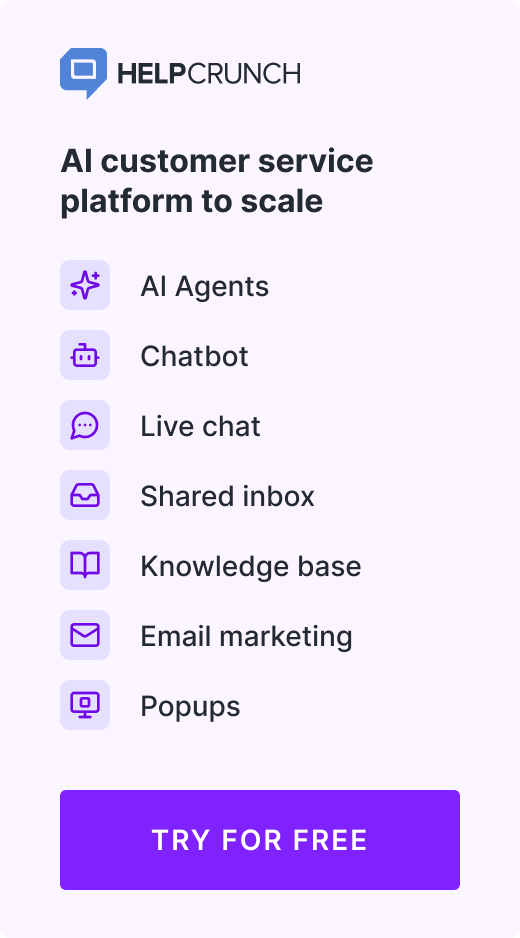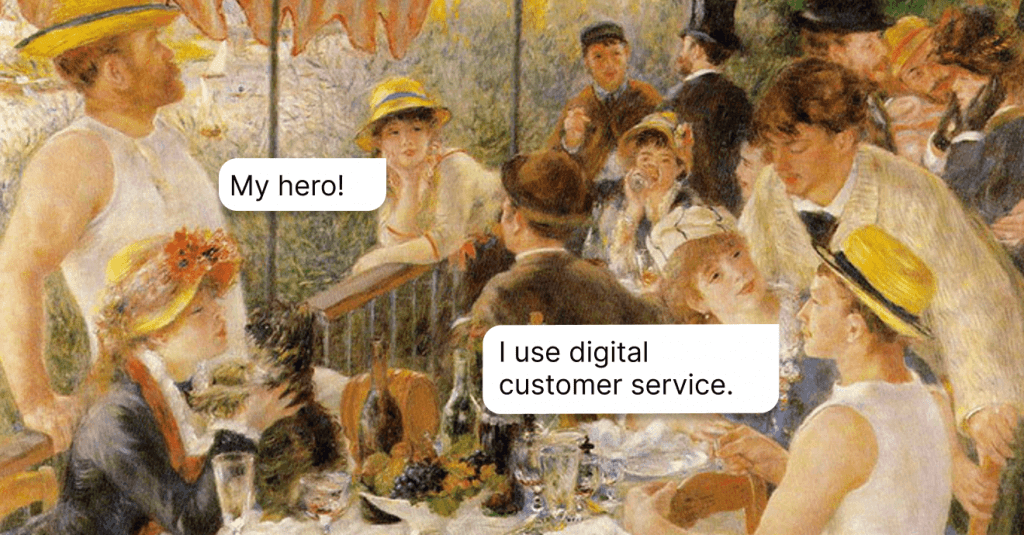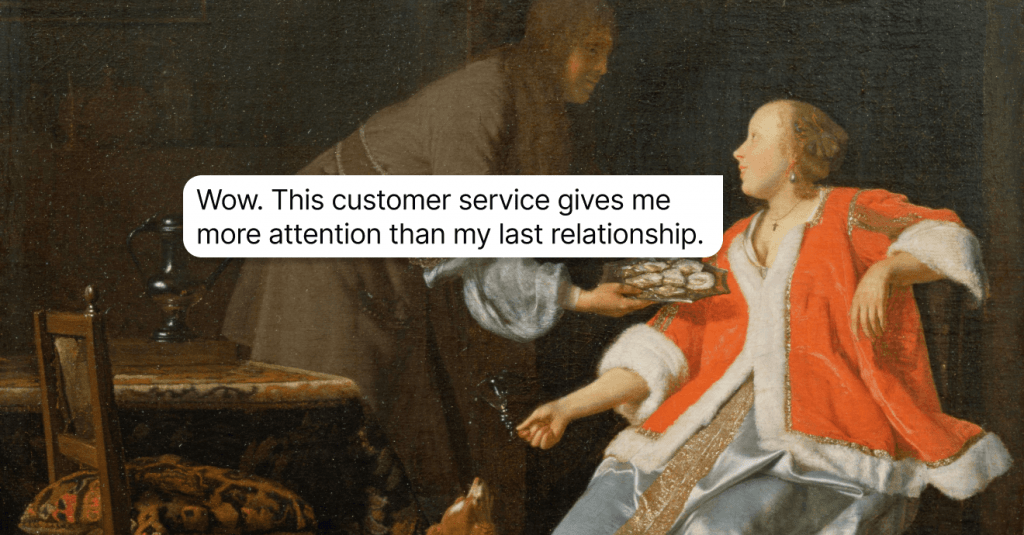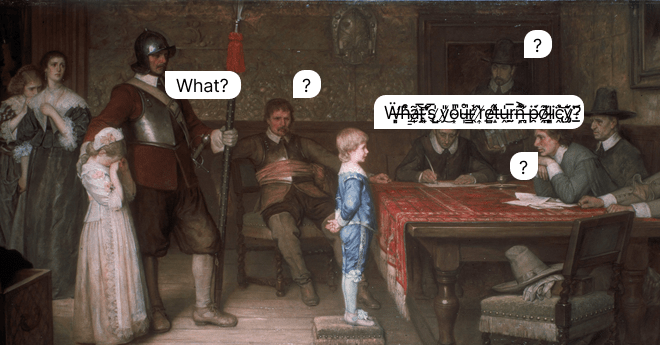Inspirational TED Talks on Customer Service Your Team Should Add to Its Arsenal
TED talks on customer service will definitely make your team grab that professional inspiration. Watch this in-depth roundup of clips on the topic. Enjoy!
Written by Daniil Kopilevych
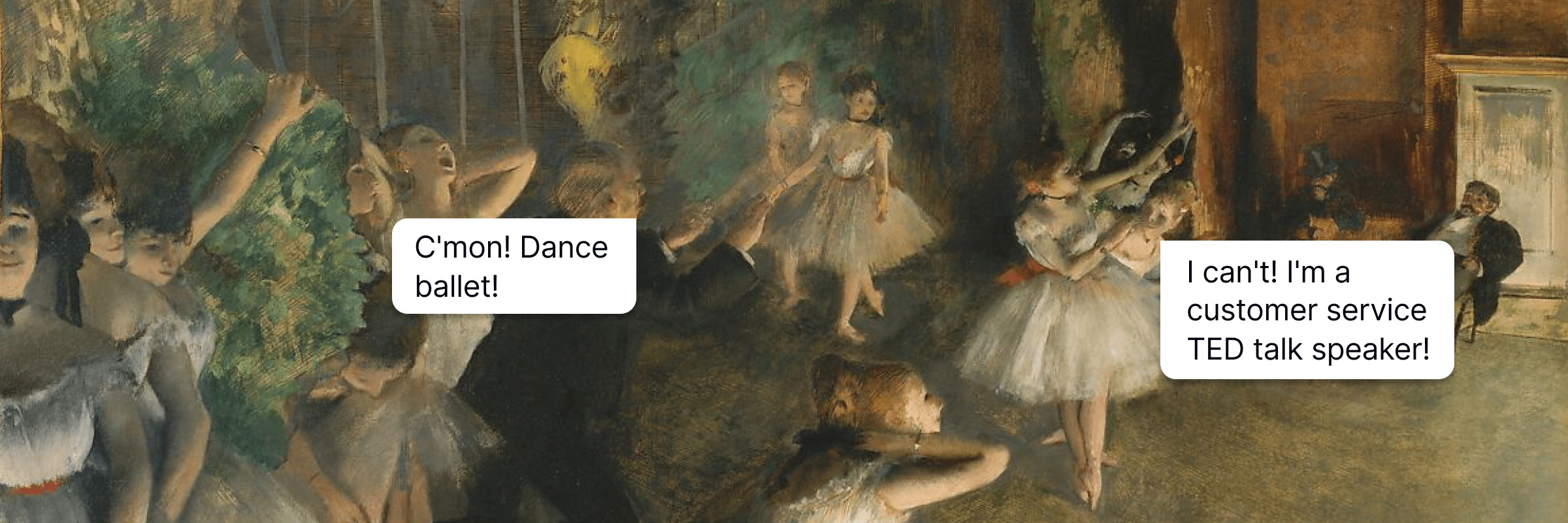
TED proudly carries its ambitious slogan – Ideas Worth Spreading – for 39 years already. Over the decades, the conference has achieved global recognition and from the initial focus on technology has grown into a forum discussing all sorts of topics – from global warming to health issues.
Andrew Tarvin, James Cameron, Stephen Hawking, Richard Branson, Bobby Stuckey, Bill Gates – you can find the names of these people among TED speakers.
Among other topics, TED has often given the floor to speakers sharing – or, should we say, spreading – their ideas of optimizing business processes and, particularly, those related to customer service. Besides, even when the topic of the talk is not directly related to customer service, companies working in client-oriented industries might find useful and interesting ideas.
So, put your headphones on: we’re gonna listen and watch TED talks customer service.
What is the customer like nowadays?
Before digging deep into the workings of customer service, it’s better to understand what customers are like today, how they behave, and what they expect. So watch these TED talks on customer service to see what a client is like today:
1. Joseph Pine: What consumers want
A canonical speech on customer service we couldn’t just miss out on. Joseph Pine, an author and speaker on management-related topics, talks about what consumers really want and how they demand authenticity. Even though talk is fifteen years old, it is the “bible” for customer wishes and demands being actual today.
According to Joseph Pine, we are now living in the era of “experience economy” where customers’ core values are authentic experiences, most of the time. In the customer service industry, being authentic may be one of the most critical skills, as customers immediately sense insincerity.
Takeaways to remember:
- The key to being true to yourself is knowing who you are as a business;
- Time and money are the basis of the “experience economy” as consumers want to spend these for experiences;
- Authenticity is the new consumer sensibility.
2. John Gerzema: The post-crisis consumer
This talk by John Gerzema, a CEO and social scientist, happened in 2009 and inspires hope that the recent financial crisis has a positive side to it. Despite the direct damage, the crisis has reshaped consumer behavior, making them more thoughtful in their purchases.
John Gerzema believes that consumers are the economy’s main driving force today, as they are becoming better organized, more attentive to each other, and more critical of products and services. Plus, they’re realizing that quality is way better than quantity.
Takeaways to remember:
- You never know when the crisis will hit, so you should always keep your wits;
- Crisis = opportunity. Snatch at it;
- Values-driven spending will force innovation and make better customer service.
Customer service best practices and how-tos
Some talks you will find below may seem far from describing customer service strategies or containing some golden rules of customer service. They may represent a crisis helpline operation or an experience of working in a shoe store. Still, each of these TED talks about customer service has more layers than it may seem at first glance.
3. Sophie Andrews: The best way to talk is often just to listen
Sophie Andrews starts by sharing her own experience of calling a helpline. The woman once reached out for help as she fell victim to parental abuse, which made her suicidal. She believes that the call saved her life then – she was solely listened to.
People calling helplines often need to be listened to more than they need actual help. As shown in the example, customers just want a little empathy (not to be confused with sympathy) and another person to lend a helping hand. And you don’t necessarily need to provide a long-form piece of advice.
In customer service, being able to listen and emphasize is a great skill, especially if you work in a support team. If you just let a person get something off their chest, it may be the key to deconstructing a problem itself.
Takeaways to remember:
- Being able to listen is one of the key customer service skills;
- Letting a customer express their feelings may be an opportunity to solve a problem;
- Listening to a client lets you create an invisible emotional connection.
4. Julia Galef: Why you think you’re right – even if you’re wrong
In her TED talk, Julia Galef raises the point of being wrong (and, of course, admitting it). The speech interwove with the so-called Dreyfus affair that took place in the 19th century and was the case of the French soldier who got accused of committing a crime being completely innocent.
She also describes the two concepts (the soldier mindset and the scout mindset) that shape the way we interpret information. We can easily mirror the topic to customer service.
For instance, you see that your business screwed up, and a client noticed it. That is, you have to come up with something to make it up to a customer. Instead of offering lame excuses, you could be transparent, providing all the proof. In other words, you have to defend your judgment.
Takeaways to remember:
- Perspective is everything when it comes to examining your beliefs;
- It’s better to be as honest as you can be with a client, even if you’re in the wrong;
- Every reasoning should be rational, otherwise, it’s hollow words.
5. Laura Hockenbury: Hidden costs of “service with a smile”
In her talk, Laura Hockenbury gives some examples of good customer service, proving that truly brilliant service happens when both sides show a positive attitude to each other. For people, it is important to feel that they are being served by another human being capable of understanding and expressing emotions.
This TED Talks customer service video explains that “welcoming expressions” might have a greater value than just mere Hello-Good bye.
Takeaways to remember:
- Companies might benefit from training their team to express human attitude;
- Eye contact plays a crucial role in customer communication;
- Treating people like people and asking a client how their day is going – you’ll see the immediate result.
6. Anna Dolce: Service isn’t the same as hospitality
Anna Dolce, an entrepreneur and hospitality expert, demonstrates that the hospitality service, unfortunately, lacks hospitality. The personnel is just going through the motions, with a little true culture of care. Introducing hospitality is what makes the business stand out.
The woman’s recommendations can be useful in any customer-facing business. “Service without hospitality is simply a transaction” – Anna claims. She highlights the importance of putting your customers first, going the extra mile for them, and providing them with something more (not just the largest loyalty programs you have at your disposal).
Best customer service companies stand out for a highly hospitable approach to clients, even if serving them remotely – via email or live chat, which you can easily do with a customer communication tool like HelpCrunch.
For instance, our customer care heroes are always there for our clients. A fair share of the positive reviews about our product and services mention the friendliness, professionalism, and helpfulness of the HelpCrunch squad. Could we be more excited about that?
Takeaways to remember:
- Put people first – they will then tell you how to get things right (if there are troubles);
- Rethink why and how you do business;
- Service is a skill, hospitality is a spirit – you can train any skill but hospitality requires another, more creative approach.
7. David Bequette: The customer revolution in customer service
In this talk, David Bequette, CFO of a dietary supplement company, discusses the importance of building relations between businesses and customers. Customer service managers, being on the front line, are the most important players in this process.
Great and honest customer relationships result in strong loyalty and viral promotions. It does not happen overnight, but it is definitely worth the effort.
Takeaways to remember:
- Respect is what drives customer-company relations;
- As service became a necessity and a core differentiator, you have to adjust your name of the game;
- If you treat customer service with authority, you will see how it operates within your company and how satisfied (or not) your clients are.
8. Steven van Belleghem: What if customers become friends?
Expanding on the idea of the TED talk on exceptional customer service by Anna Dolce, this video discusses the possibility of customers becoming friends with a business. While such cases are rare enough, especially in large companies, the business can work towards making a customer feel cared for.
It is all about treating customers as mere sources of revenue or as human beings to be respected and understood. The difference is enormous, and the most important thing is that your client always feels these nuances. Steven provides the example of the football team Munich Bayern which is virtually owned by its fans.
Great customer relations translate into great customer satisfaction – it’s essential to measure this parameter and your customer support team’s performance with reports.
Takeaways to remember:
- In reality, what a company does need is the heart and a real bond with customers (not just another rewards program to sweeten the deal);
- The secret ingredient is to involve people in what you do and develop it together;
- Loyalty programs themselves represent a discount card and thus have no connection to loyalty.
Your team is your main asset
Customer service is always a game of two players – customer service reps and users. An effective customer service team is a huge step toward your business success and customer satisfaction.
9. Patty McCord: 8 lessons on building a company people enjoy working for
Patty McCord who used to be the Chief Talent Officer of Netflix gives a powerful talk on the importance of treating employees from a position of trust. Loosening the requirements and restrictions and relaxing the control over your team can result in improved efficiency.
In customer service, establishing a healthy environment in the team is critical. The job is stressful enough, so trusting the customer service representatives and treating them as equals can prevent them from customer service burnout.
Takeaways to remember:
- Start with the assumption that everybody comes to work to do amazing things – you’ll be surprised by what you get;
- Management should be encouraging customer service workers, not controlling them;
- Everyone in a company should understand THE business – throw away the jargon.
10. Diana Dosik: Why we need to treat our employees as thoughtfully as our customers
Diana Dosik notes that companies invest lots of money, time, and effort in researching customer experiences and building exciting customer journeys. At the same time, employees do not get the same attention. This situation has to change.
Understanding the employees pays back with motivation and loyalty and, therefore, better productivity and efficiency. Any employee who feels respected and cared for will treat the company and its customers in the same manner.
Takeaways to remember:
- You need to realize that your company actually depends on your employees, not only customers;
- Treat customer service staff in a way that their goals are aligned with yours;
- Companies now can’t afford the ignorance about what their employees do and why.
11. Tamekia MizLadi Smith: How to train employees to have difficult conversations
conversations
Tamekia MizLadi Smith gives her TED talk on confidence in customer service stressing the importance of training the personnel properly for exceptional and non-routine situations. She introduces her special training program “I’m G.R.A.C.E.D.” which will inspire bosses and employees alike to communicate with compassion and respect.
Poor training will undoubtedly lead to escalations that could be avoided if the service agent had the required knowledge and understanding of how to act in a difficult situation.
Takeaways to remember:
- Training human beings to communicate with human beings must be done by human beings (yeah, sorry for the excessive tautology);
- Always let people know why their work matters;
- While asking difficult questions, treat clients with respect.
12. Melinda Briana Epler: 3 ways to be a better ally in the workplace
Remember how parents used to teach us: hard work and dedication will lead us to success. But that’s not always the case. Disability, race, sexual orientation, religion, and gender are among the numerous factors that affect our chances. We have to be allies for those who face discrimination.
There is no place for microaggressions in the workplace. This phenomenon simply plays hell and takes a heavy toll on staff. Melinda offers effective methods on how to overcome this. Besides, she speaks for creating equal opportunities and conditions for underrepresented people as it helps establish better teams and better companies.
Takeaways to remember:
- Pay close attention to underrepresented people and don’t interrupt them;
- Provide opportunities for someone and become a mentor;
- If you take someone’s idea, attribute it to them.
13. Marco Alverà: The surprising ingredient that makes businesses work better
So what IS the ingredient for all brands to work better? While unfairness is bad in all its aspects, fairness should be the top-of-mind priority. Marco says that it is a tough nut to crack, unfortunately.
In his customer service TED talk, Marco Alverà highlights the importance of standing with your employees and supporting them in risk-taking. Besides, he thinks that punishing them for their mistakes may be detrimental. Otherwise, you’ll lose them for good. You as a business owner should teach them and point them in the right direction, that is, to act fairly. Fairness is a risk worth taking – concludes Marco.
Takeaways to remember:
- Encourage employees to take risks;
- Focus on the person’s hard work, not just on outcomes;
- Promote diverse opinions and help your staff speak up.
How great customer service pays back
Setting up stellar customer service is an investment. When you invest, you always want to know if it will bring returns. Well, if done wisely, it definitely will. These customer service TED talks tell us what results we can yield if we lean backward (in a positive sense):
14. Lisa Ekstrom: How I Stole Great Customer Service with Pride
Lisa Ekstrom, head of the customer service department at Scandinavian Airlines, tells the story of how important it is to focus not only on unhappy customers but on happy ones, too.
The woman is the founder of a Swedish company called Kamoja (in Thai, it means “borrow”, or “switch”). She points out that there are lots of great customer service techniques out there that you should not be afraid to try and adopt in your business. One of them is borrowing a real story or a life hack from someone and making it more like storytelling so that it helps transform your business.
In customer service, you do not need to reinvent the wheel – just look around to see what works for others and make it work for you.
Takeaways to remember:
- It takes courage to put yourself out there and try something you haven’t done before – so do it;
- Failure – is bravery;
- “Difficult – is fun”, have an environment where people support you and become that person yourself.
15. John Boccuzzi: I was seduced by excellent customer service
John Bocuzzi, a marketing expert, gives a real-life example of how exceptional customer experience can beat all other marketing techniques. At the end of the day, it’s the experience that matters and makes customers come back for years and years.
Customer experiences may either kill your business or boost it. This is why it is so important to focus on the staff who are in direct contact with customers – they might become your best brand promoters.
Takeaways to remember:
- Customer service is not only about help, but also about reading the room right during or after the customer interaction/purchase;
- Delivering exceptional customer service is the prime differentiator between a company and its competitors;
- Exceptional service is not only good for a customer but also good for a company as it can then outperform the competition in revenue.
16. Rachel Botsman: We’ve stopped trusting institutions and started trusting strangers
Rachel Botsman, a leading expert and author on trust in the modern world, has also contributed to TED Talk, namely, how corporate trust influences consumers all around the globe. She talks about such companies as Airbnb, Uber, or Bla Bla Car and how easily we let a stranger trust us and vice versa (which is more important).
Is it possible to provide memorable service to utter strangers and come into the spotlight? How can we adjust to the trust shifts without complementing our security? Does trust transfer? These and other questions Rachel unveils in her speech.
Takeaways to remember:
- Trust is an elusive concept. And yet we depend on it for our lives to function.
- The real disruption happening isn’t technological, it’s the trust shift it creates.
- Trust enables change and innovation.
17. Frances Frei: How to build (and rebuild) trust
Frances Frei, professor of Business Administration at Harvard Business School talks on trust and why it is the foundation of everything we deal with. Especially when it comes to the company culture. She explains how we can build, maintain, and rebuild it – exactly what she was working on during her stint at Uber.
Takeaways to remember:
- There are three major components of trust: authenticity, logic, and empathy. When these things collide, this is when trust is at its pinnacle.
- Be you. If we hold back who we are, we are less likely to be trusted.
- Set the conditions for your team that not only make it safe for them to be authentic but make it welcome and celebrated.
Customer service TED talks: summing it up
Wrapping up all the insights from the best customer service TED talks, we can single out the most important concepts that can help you build a great marketing strategy where the focus is on the customer:
- Know your client
- Learn to listen to them
- No matter how difficult the situation is, remain human (and calm!)
- Treat your employees with the same care as you treat your clients
- Go the extra mile for your clients
- Do not be afraid to fail
- Try new techniques
From the practical aspect, we also recommend that you set up your customer service on a solid foundation of effective and reliable tools. When your work processes are intuitive and streamlined, your customer support staff will be able to focus on their primary goal – making customers happy – without worrying about the technical side of it.
At HelpCrunch, our main objective is to create a customer service environment that enables great communication, both reactive and proactive, and allows measuring your effort in hard figures and visual graphs. Give it a try – but don’t forget that truly great customer service is about care, empathy, and, most of all, trust.

